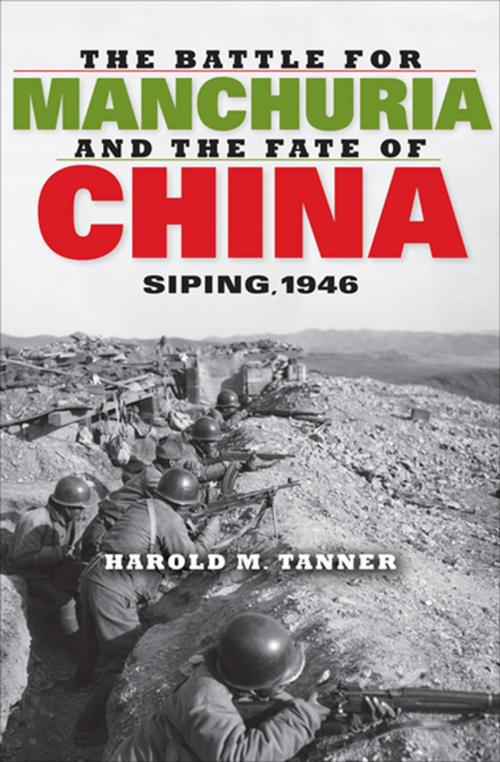The Battle for Manchuria and the Fate of China
Siping, 1946
Nonfiction, History, Asian, China, Military, Other| Author: | Harold M. Tanner | ISBN: | 9780253007346 |
| Publisher: | Indiana University Press | Publication: | March 18, 2013 |
| Imprint: | Indiana University Press | Language: | English |
| Author: | Harold M. Tanner |
| ISBN: | 9780253007346 |
| Publisher: | Indiana University Press |
| Publication: | March 18, 2013 |
| Imprint: | Indiana University Press |
| Language: | English |
“A well-organized and excellently researched work” (H-War) on one of the crucial battles of China’s civil war.
In the spring of 1946, Communists and Nationalist Chinese were battled for control of Manchuria and supremacy in the civil war. The Nationalist attack on Siping ended with a Communist withdrawal, but further pursuit was halted by a ceasefire brokered by the American general, George Marshall. Within three years, Mao Zedong’s troops had captured Manchuria and would soon drive Chiang Kai-shek’s forces off the mainland. Did Marshall, as Chiang later claimed, save the Communists and determine China’s fate? Putting the battle into the context of the military and political struggles fought, Harold M. Tanner casts light on all sides of this historic confrontation and shows how the outcome has been, and continues to be, interpreted to suit the needs of competing visions of China’s past and future.
“A genuine addition to our knowledge about this battle and the Chinese civil war in general.” —Mark Wilkinson, Virginia Military Institute
“A well-organized and excellently researched work” (H-War) on one of the crucial battles of China’s civil war.
In the spring of 1946, Communists and Nationalist Chinese were battled for control of Manchuria and supremacy in the civil war. The Nationalist attack on Siping ended with a Communist withdrawal, but further pursuit was halted by a ceasefire brokered by the American general, George Marshall. Within three years, Mao Zedong’s troops had captured Manchuria and would soon drive Chiang Kai-shek’s forces off the mainland. Did Marshall, as Chiang later claimed, save the Communists and determine China’s fate? Putting the battle into the context of the military and political struggles fought, Harold M. Tanner casts light on all sides of this historic confrontation and shows how the outcome has been, and continues to be, interpreted to suit the needs of competing visions of China’s past and future.
“A genuine addition to our knowledge about this battle and the Chinese civil war in general.” —Mark Wilkinson, Virginia Military Institute















